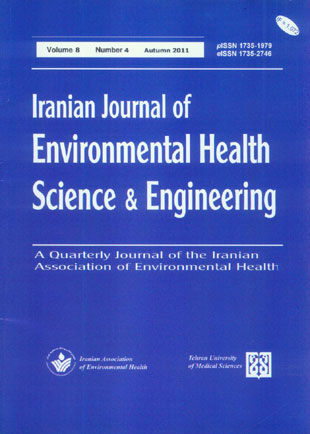THE EFFECT OF METAL OXIDES ON THE REFINERY EFFLUENT TREATMENT
Author(s):
Abstract:
Metal Oxides (Titania TiO2, and Calamine (ZNO)) have been used as tertiary treatment for Refinery Effluent treatment and wastewaters to comply with the regulatory discharge limits and to oxidize persistent compounds that had not been oxidized in the biological treatment. The wastewater was provided by the Bandar Abbas Refinery. Although BOD removal is high in this plant, a residual and persistent COD (Chemical Oxygen Demand), besides a somewhat high phenol content remains. Three catalysts were tested TiO2 (Aldrich), ZnO (Aldrich), and TiO2 (P25, Degussa) by the UV radiation, the third being the most active. The optimized conditions obtained with an experimental design were 3.0 (g/L) TiO2 and pH=6.3. The use of hydrogen peroxide (H2O2) showed no beneficial effect. Removal of 93% of phenols, 56% of dissolved organic carbon (DOC), and more than 50% of oil and grease (OG) were achieved in the catalytic process with UV radiation, improving the quality of the treated wastewater.
Language:
English
Published:
Iranian Journal of Environmental Health Science and Engineering, Volume:8 Issue: 2, Spring 2011
Page:
169
https://magiran.com/p876690


